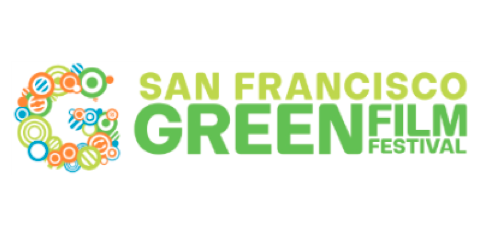Films Explore High-Consumption Lifestyles, Sustainable Solutions
by Mark Valentine | March 13, 2012

During its week-long run March 1–7, the 2nd Annual San Francisco Green Film Festival showcased more than 40 films on sustainability themes, including climate and energy, urban farming, sustainable urban design, and the impacts of our high-consumption lifestyles.
Below is a small sampling of films that screened at the festival. For the full program, check out the festival's website.
Feature Films
Cafeteria Man (65 minutes)
Directed by Richard Chisholm
Follow Tony Geraci, a charismatic chef from New Orleans, as he attempts to kickstart school lunch reform in Baltimore’s public schools. Battling bureaucracy and a system resistant to change every step of the way, the film explores Geraci’s efforts to transform students’ relationship to food. This includes introducing meatless Mondays, nutrition education in the classroom, and a citywide culinary vocational training program. The film features appearances by food activist and best-selling author Michael Pollan, First Lady Michelle Obama, and Assistant White House Chef Sam Kass.
Taste the Waste (92 minutes)
Directed by Valentin Thurn
According to Thurn’s alarming, eye-opening documentary, about half of all food produced globally ends up being thrown away. Thurn examines the widespread causes of this massive waste and explores the contributions of everyone in the food chain—from consumers to food producers to politicians. This activist documentary also looks for solutions, interviewing dumpster divers, enlightened supermarket managers attempting to educate their customers into purchasing less harmfully sourced foodstuffs, and consumer associations forming links between purchasers and smaller, local producers.
Blood in the Mobile (82 minutes)
Directed by Frank Piasceki Poulsen
In the spirit of Michael Moore, Poulsen investigates the degree to which Nokia, one of the world’s biggest mobile manufacturers, is aware of the “hidden costs” of its products. The film reveals how minerals essential to the company’s phones are illegally mined in the Democratic Republic of the Congo by slave laborers and how profits from the mining finance the lethal activities of local warlords. The filmmaker’s search for the truth takes him to parts of the Congo that the United Nations peacekeeping force is too afraid to enter. There, he meets a cast of characters who might have been created by Greene, Waugh and le Carré.
Urban Roots (93 minutes)
Directed by Mark MacInnis
Against all odds, in a city too often defined by images of boarded-up shops, empty lots, and defunct factories, seeds of change are taking root in Detroit, Michigan. The film shows dedicated Detroiters working tirelessly to fulfill their vision for locally grown, sustainably farmed food in a city where people—as in much of the county—have found themselves cut off from real food and limited to the paltry offerings of fast food chains and corner convenience stores.
Future of Hope (75 minutes)
Directed by Henry Bateman
In 2008, Iceland’s entire banking system collapsed in the wake of the global financial crisis. As a consequence, the country’s economic and political systems were shaken to their core. The film tells the story of how a cross-section of Icelandic society decided to use the crisis as an opportunity to reinvent the country’s economic development path around the principles of sustainable development.
Short Films
Coalition of the Willing (16 minutes)
Directed by Simon Robson
This animated short explores how the myth of the American Dream was hijacked by corporate interests to induce rampant consumption, and how we could use new Internet technologies to leverage the powers of activists, experts, and ordinary citizens in collaborative ventures to combat climate change.
Watch the film
Gloop (4 minutes)
Directed by Gaby Bastyra & Joe Churchman
Told like a Brothers Grimm fable, Gloop offers a poignant and lasting message about the price we pay for the convenience of plastic.
Watch the film
Yelp: With Apologies to Allen Ginsberg’s "Howl" (3 minutes)
Directed by Tiffany Shlain
Technology can be addictive. In a tribute to Allen Ginsberg’s classic 1956 poem, Howl, Shlain created a short film lampooning the addictions of our generation. Peter Coyote narrates.
Watch the film

